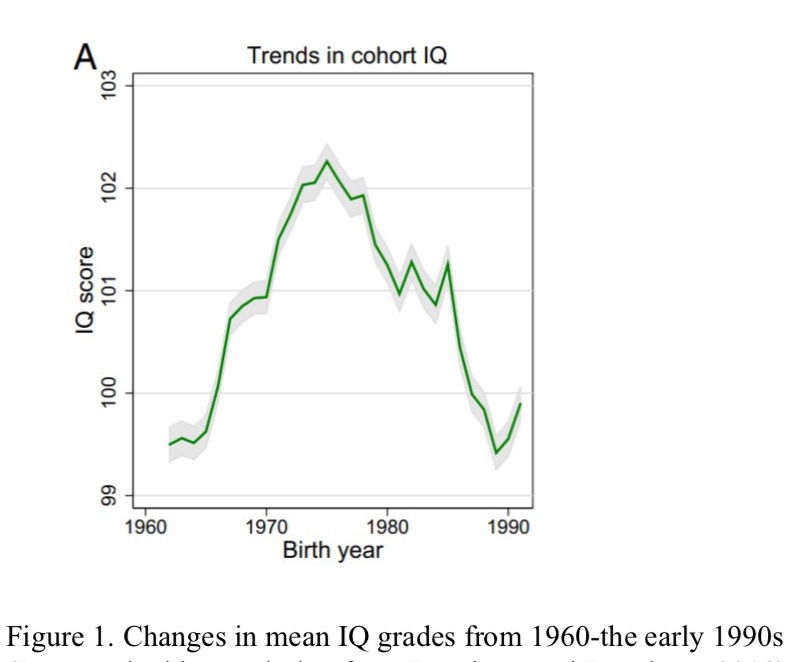From the early 1930s and beyond, IQ tests were periodically restandardized. This meant that the researchers had to administer the IQ tests to a large number of people and set the average performance at 100. However, it was discovered that people were achieving scores substantially higher than 100 on the same IQ tests as those involved in the earlier standardization. This upward drift in IQ of about one standard deviation (15 points) every two generations is now known as the Flynn effect, in recognition of James R. Flynn’s discussion of its potential causes and implications.
In his TED Talk, https://www.ted.com/talks/james_flynn_why_our_iq_levels_are_higher_than_our_grandparents?language=en#t-6654 presented on September 26, 2013, Flynn hypothesized that the new technologies including radio, television, and computers are demanding more abstract thought than the environment of the early 20th century. He noted that in 1900, only 3% of jobs were cognitively demanding, including occupations such as doctor, lawyer, teacher, and accountant. He compared this to the 35% of jobs today that demand higher order thinking skills. Flynn asserted that the high-tech environment is stimulating a latent capacity for abstract thought that was not as strongly demanded in previous generations. The rapid increase in IQ in two generations is too fast to be attributed to genetic mutation and suggests that intelligence can be increased by appropriate environmental influences. To further complicate the issue, recent studies have revealed that while IQ scores increased between 1930 and 2000 (positive Flynn effect), IQ scores declined in subsequent decades (negative Flynn effect) in some countries–a decline that some researchers attribute to environmental effects such as declining educational standards and passive technologies.
In 2018, Bernt Bratsberg and Ole Rogeberg published “Flynn effect and Its Reversal are Both Environmentally Caused.” Proceedings of the National Academy of Sciences of the United States of America, accessible in PDF format at: http://www.pnas.org/content/early/2018/06/05/1718793115. In that publication, they presented the graph below suggesting that the increase in IQ has reversed and is in decline.

In 2020, Leehu Zysberg of Gordon College of education in Haifa, Israel published “The Reversal of the Flynn Effect,” http://www.pnas.org/content/early/2018/06/05/1718793115 , in which he presents the results of the world-wide PISA (Program for International Student Assessment) studies to verify that student performance in language and especially mathematics are in decline in the OECD countries. This raises a variety of questions. If IQ is mainly genetic, then why is there such variance in IQ over such a short period of time? If IQ is more malleable than once thought, what are the environmental experiences can enhance IQ? Are these effects merely statistical anomalies arising from comparing samples over different cohorts of significantly different populations? There is a great deal of speculation about whether humans are becoming more or less intelligent, and the answers when they come will be derived from mathematically rigorous statistical studies.
